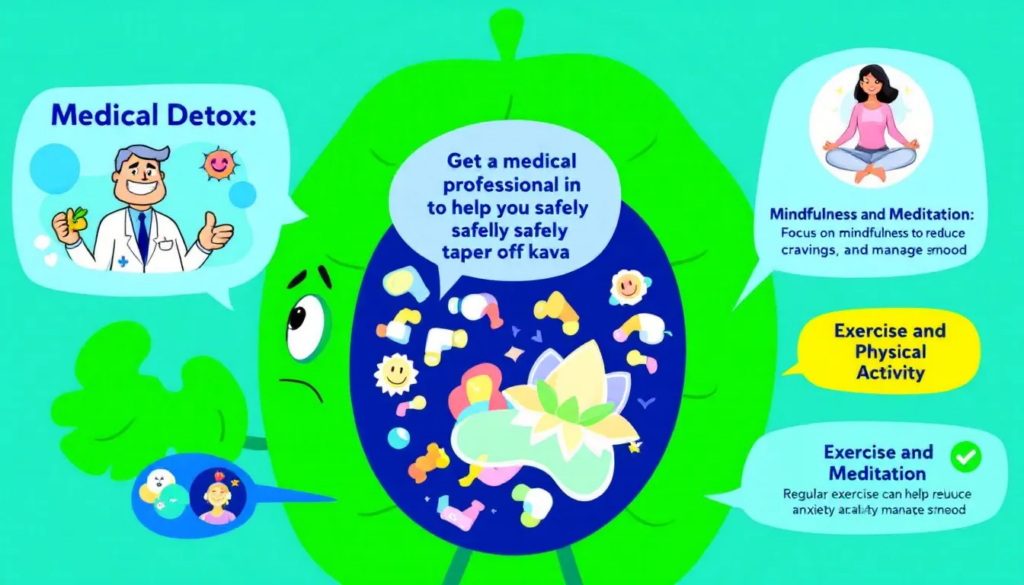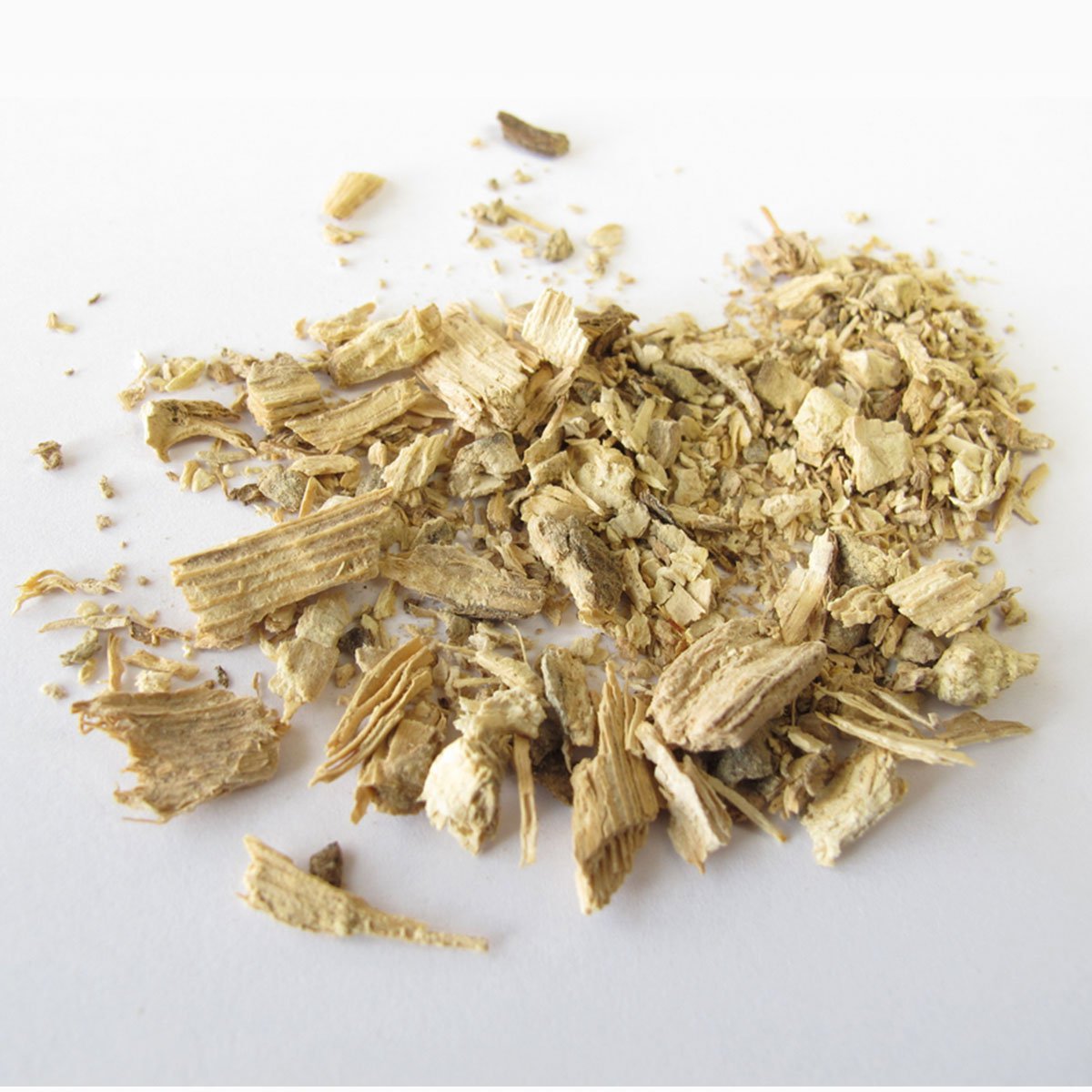Is kava addictive? While kava is not generally considered highly addictive, it can lead to dependence in some individuals, especially with frequent and excessive use. This article will explore the risks and benefits of kava, the factors influencing addiction, and how to use it safely.
Key Takeaways
- Kava can lead to dependence, particularly through frequent use and higher doses, highlighting the importance of mindful consumption.
- Long-term kava use is associated with health risks, including liver toxicity and potential cognitive impairments.
- Kava is recognized for its anxiety-reducing properties and is viewed as an alternative medicine, but users should be cautious of its addictive potential.
Is Kava Addictive? Understanding the Risks and Benefits

Although kava is not typically considered as addictive as substances such as opioids, some users may develop a dependence on it. The likelihood of becoming dependent on kava increases with more frequent and higher amounts of consumption, especially when considering the individual’s health history. Understanding these risks helps consumers make better choices regarding their kava use.
Kava can induce psychological dependence. To any physical dependency that might arise due to its sedative effects, which are often sought out for stress relief. Regular overuse could lead individuals into a cycle where they need increasing dosages for the same calming effect—a process that transforms occasional kava use into potential addiction through gradual escalation.
Assessing both positive aspects and possible dangers associated with using Kava demands an awareness of its addictive capabilities while still acknowledging its value for therapeutic purposes. Being conscious about what contributes to developing a dependence on Kava allows people who consume it to regulate their intake more carefully and avoid falling into patterns indicative of addiction.
Introduction
Extracted from the root of Piper methysticum, a plant native to the South Pacific, kava has been traditionally used in both medicinal and ceremonial settings for its calming properties. Kavalactones, the active substances within kava, induce relaxation by altering how nerve signals are transmitted throughout the body and help reduce feelings of anxiety.
Kava is often touted as an alternative with fewer risks than standard anxiety medication due to its supposed lack of severe withdrawal symptoms. Its ability to alleviate anxiety without such drawbacks has drawn considerable attention. Nevertheless, evidence regarding the effectiveness of kava in clinical tests is inconsistent—some studies indicate it might offer relief on par with benzodiazepines.
Nevertheless, there are significant concerns tied to the use of kava that cannot be ignored. In particular, issues regarding liver toxicity have led certain nations to restrict or ban its usage altogether. It’s crucial for users and healthcare providers alike to weigh both potential advantages and dangers associated with consuming kava carefully. Noted were impaired cognitive functions and diminished reaction times when taken alongside other drugs. This underscores caution amongst consumers considering incorporating kava into their regimen.
What is Kava?

The kava plant, also known by its other moniker, kava kava, hails from the South Pacific islands and is respected for its ability to elicit a serene and tranquil state. As a cultural staple of Piper methysticum in traditional island ceremonies and healing rituals for many generations, it has served to foster relaxation and communal ties.
Delving into the essence of what makes the kava plant effective unveils that its power resides within its roots. Abundant with active ingredients known as kavalactones, these elements are responsible for imbuing the plant with psychoactive attributes. When consumed, they interact with certain non-opioid neural pathways in the brain thereby fostering calmness without dulling cognitive clarity—making it an appealing choice for individuals seeking solace from tension or unease.
Despite not typically being associated with high addiction potential, there’s still risk involved when indulging frequently or heavily in this botanical. Some users may find themselves grappling with dependence on Kava. It is pivotal to account for personal health profiles alongside how much one ingests when considering susceptibility to becoming dependent on it—highlighting an essential balance between appreciating Kava’s positive effects while remaining cautious about overindulgence.
How is Kava Consumed?
Various methods are available for kava consumption, accommodating different tastes and lifestyles. The time-honored approach involves creating a drink by steeping pulverized kava root in water. This practice is particularly prevalent in social settings like kava bars that celebrate the shared experience of drinking kava.
Contemporary ways to consume kava include micronized powders, potent extracts, and as a dietary supplement. Micronized powder dissolves readily into water or other liquids for those needing a quick preparation method. For precise dosing and stronger effects, liquid or capsule forms of concentrated kavain—found in extracts—are used.
The diverse approaches to consuming this plant highlight its adaptability and broad appeal among consumers. Whether one gravitates towards the conventional ritualistic beverage or opts for an expedited modern variant such as supplements, understanding the various modes of taking kava facilitates informed decisions regarding its usage.
Psychoactive Effects of Kava
Kava is acclaimed for the soothing psychoactive effects it delivers, particularly its capacity to bring about a profound sense of relaxation and peace. Kavalactones, which are kava’s active ingredients, interact with neural pathways in the brain to diminish anxiety and foster a state of serenity. Unique among mind-altering substances, kava enables individuals to maintain cognitive clarity while experiencing its calming benefits. This quality has made kava a sought-after substance for those seeking stress relief without succumbing to the lethargy often associated with sedative products.
After partaking in kava, many users report experiencing enhanced calmness and repose—testament to its efficacy as an organic antidote for tension and nervousness. Its distinctive blend of tranquilizing properties combined with preservation of mental acuity distinguishes kava from other psychoactive compounds. Consequently, this explains why it continues to be embraced both within traditional rituals and contemporary lifestyle practices as an agent for alleviating stress while promoting alertness.
Is Kava Addictive?
Although kava is not typically considered to have a high potential for addiction, there are cases where it can result in dependency. This complex condition of kava addiction encompasses physical and psychological elements that will be discussed Below. Understanding these components is crucial for anyone contemplating frequent consumption of kava.
Different factors affect the likelihood of developing an addiction to kava, such as how often one consumes it, the amount taken, and personal vulnerability to dependence. Investigating these contributing aspects alongside recognizing symptoms of dependency helps us better comprehend the risk associated with habitual use of Kava and strategies for reducing those risks.
Psychological Dependence
The habitual use of kava can lead to psychological dependence, characterized by intense cravings and a pattern of regular consumption. As tolerance develops from prolonged kava use, individuals often find themselves needing larger amounts to attain its soothing effects. This escalating usage can have serious consequences for one’s mental health and general wellness.
Those with a psychological reliance on kava may continue its use despite being aware of the possible negative outcomes. Recognizing the symptoms of dependency is crucial in managing kava intake and averting the onset of an addiction to this substance.
Physical Withdrawal Symptoms
Symptoms of withdrawal from kava may present themselves in the form of restlessness and anxiety, as well as potential irritability and difficulty sleeping. The duration of these symptoms related to withdrawing from kava can vary greatly, ranging anywhere from a handful of days up to numerous weeks. This variation is influenced by how dependent the person is on kava and how regularly they have consumed it.
Encountering withdrawal underscores the necessity for slowly tapering off rather than suddenly stopping the use of kava. Awareness and understanding these particular symptoms are crucial for individuals who aim to diminish or discontinue their consumption of kava.
Factors Influencing Addiction
The likelihood of becoming addicted to kava can be affected by several elements, such as a person’s inherent vulnerability and any existing mental health issues. The risk for addiction is Impacted by how often and in what quantities kava is ingested.
When kava use involves mixing it with additional substances like alcohol, the potential for developing a dependency increases, which could result in negative health consequences. Being aware of these influencing factors and how they interact is crucial for individuals to make educated choices about their consumption of kava, thereby reducing the chances of addiction.
Health Risks and Safety Concerns
Despite its numerous advantages, the use of kava is not free from potential hazards. Extended consumption of kava has been associated with several health complications, notably liver damage and a range of other negative outcomes. Recognizing these dangers is essential for individuals contemplating the incorporation of kava into their routine.
The risks related to dependency and liver injury are substantially heightened when one mixes kava with alcohol or any other drugs. It’s crucial that consumers choose products derived exclusively from the root of the plant since utilizing different parts could introduce Health risks. Being aware of these safety issues allows users to make educated decisions, thereby reducing their chances of encountering adverse effects linked to kavana use.
Liver Damage
The association between kava use and various liver issues, such as hepatitis, cirrhosis, and especially acute liver failure is well-documented. With chronic intake of kava potentially modifying gene expression and affecting the enzymes in the liver that metabolize drugs, there are substantial health concerns to consider.
Hepatotoxicity stands out as one of the most serious toxic effects linked to kava consumption that can progress to liver failure if not properly managed. This underscores the importance of being conscious about these dangers when contemplating prolonged usage of kava and emphasizes why medical supervision and regular monitoring are imperative.
Other Adverse Effects
Kava is associated with a range of adverse effects, including gastrointestinal discomfort, nausea, and headaches, to liver damage. Prolonged misuse may exacerbate or trigger severe problems such as depression, drowsiness, and deterioration in mental health conditions.
Kava has been known to induce contact dermatitis leading to scaly rashes on the skin. It is critical to fully recognize how kava affects one’s well-being and exercise caution when using it.
Legal Status and Regulation
The global legality of kava is characterized by significant disparities. Nations such as Fiji and New Zealand recognize the cultural and therapeutic significance of kava, whereas countries including France and Switzerland have outlawed it owing to fears regarding its safety. The United States presents a complicated regulatory scenario for both kava bars and related products, with laws differing from one state to another.
Central to these diverse regulations is the issue of potential liver toxicity associated with kava consumption. It’s crucial for individuals who consume kava to be informed about the legal context in which they do so, ensuring adherence to regional legislation while prioritizing safe usage practices.
Kava as an Alternative Medicine
Kava has earned acclaim for its capacity to diminish anxiety and improve sleep quality, presenting itself as a favored substitute for traditional treatment options. Rigorous scientific research indicates that the use of standardized kava extracts can markedly alleviate symptoms associated with anxiety and outstrip placebo effects in treating anxiety disorders.
Proponents of kava emphasize both its cultural importance and advantageous properties, championing for legal approval and increased recognition. The proficiency of kava in soothing anxieties, combatting insomnia, along with possible mood-boosting qualities reinforce its merit within the realm of alternative medicine.
Safe Use Guidelines
It is recommended for the safety of kava consumption that individuals should not consume more than 250 mg of kavalactones per day. The potency of a dose can vary between 70 and 250 mg, which correlates with the kind of product containing kava one opts to use. To prevent taking improper doses and guarantee safe utilization, it’s important to choose products that clearly indicate their kavalactone content.
To avoid developing tolerance towards kava, which may necessitate increased dosages over time to experience its effects, regular breaks from consuming this substance are advisable. Sticking strictly to prescribed dosage limits also aids in circumventing the potential for dependency when engaging in long-term use of kava.
Treatment for Kava Addiction

The initial approach to addressing kava addiction encompasses a comprehensive evaluation and a detoxification process aided by medical supervision. This primary phase is critical for alleviating withdrawal symptoms and equipping individuals with the foundation necessary for continuous treatment. Services customized to address the particular hurdles of kava addiction can be found in both residential (inpatient) and non-residential (outpatient) program formats.
As part of an effective recovery plan from kava addiction, involvement in support networks, engaging in enjoyable activities, and steering clear of situations that might prompt usage are recommended strategies. Incorporating holistic methods such as therapy conducted by professionals specializing in addiction contributes significantly to healing efforts. It helps tackle any concurrent mental health conditions while fostering enduring abstinence.
Summary
Kava, with its rich cultural heritage and modern applications, offers both benefits and risks. While it can provide significant anxiety and stress relief, it is essential to understand the potential for dependence and adverse health effects. By recognizing the factors that influence kava addiction and adhering to safe use guidelines, individuals can enjoy the benefits of kava while minimizing risks.
As with any substance, informed and mindful consumption is key. Understanding kava’s effects, risks, and legal status can help users make better decisions and avoid potential pitfalls. With the right knowledge and approach, kava can be a valuable part of a holistic wellness regimen.
Frequently Asked Questions
Is kava addictive?
Kava is not considered highly addictive, but it can cause dependence in some individuals with frequent and excessive use.
It’s important to use it responsibly to avoid any potential issues.
What are the withdrawal symptoms of kava?
Withdrawal symptoms from kava may include anxiety, restlessness, irritability, and insomnia, potentially lasting from a few days to several weeks.
It’s important to approach any discontinuation carefully to manage these symptoms effectively.
How is kava consumed?
Kava is primarily consumed as a traditional beverage made by steeping ground kava root in water, but it is also available in forms like micronized powder, extracts, and supplements.
Each method offers a unique way to experience the effects of kava.
What are the health risks associated with kava use?
Kava use poses serious health risks, including liver damage, gastrointestinal discomfort, and headaches.
It’s crucial to be cautious and informed if considering its use.
Is kava legal?
Kava is legal in some countries such as Fiji and New Zealand, but it is banned in others, including France and Switzerland, due to safety concerns.
Always check local regulations before using kava.

Mitchell Grant Cohen
Dr. Mitchell G. Cohen is a board-certified Internal Medicine specialist with over 34 years of experience in patient-centered healthcare. A graduate of Hahnemann University School of Medicine, Dr. Cohen completed his internship at the University Health Center of Pittsburgh, where he gained invaluable hands-on experience. He is also a certified addiction specialist, holding membership with the American Society of Addiction Medicine (ASAM).
Currently based in Nashua, NH, Dr. Cohen is affiliated with Saint Joseph Hospital, where he provides comprehensive care focusing on both internal medicine and addiction treatment. His expertise includes prevention, diagnosis, and management of adult diseases, as well as specialized care for individuals facing substance use disorders.
Dr. Cohen is committed to fostering open communication, ensuring his patients are fully informed and empowered to make confident decisions about their health and treatment options.





